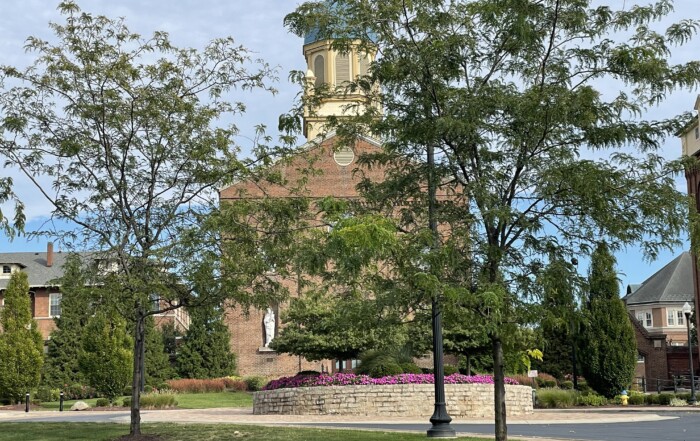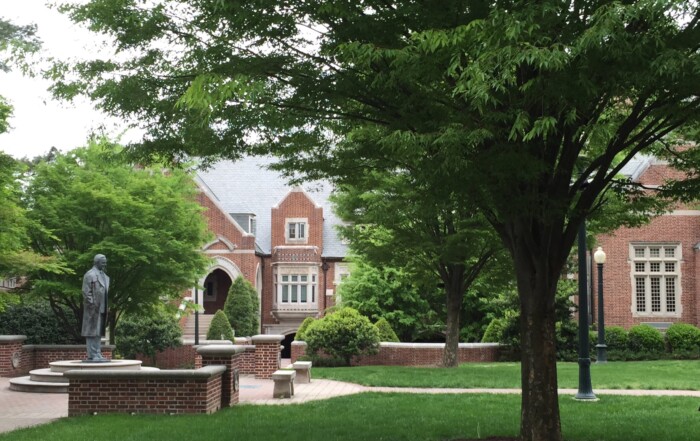College Admissions Tips and Guidance
Are You Ready for College? Why Going Straight from High School to College May Be the Wrong Decision

Explore Our Articles
Recent Posts
Popular Categories
Get In Touch
On Social
By Phone or Text
(617) 734-3700
By Mail or Email
1678 Beacon Street
Brookline, MA 02445
By Form
Educational Advocates
Our objective is to guide the family in finding options where the student will not only get admitted, but thrive and find success once on campus.
Are You Ready for College? Why Going Straight from High School to College May Be the Wrong Decision

Taking a year off to explore can be enriching for students.
One of the first questions we ask of students is, “Why do you want to go to college?” They are inevitably taken aback by the question. As far back as they can remember their parents have made it clear that college will be part of their future. To many of these teens, going to college is just another milestone like learning to read or getting a driver’s license. As a result, they haven’t given much thought to their goals or what they hope to achieve once they arrive on campus. In our culture, there is pressure to enter college the September following high school graduation, but this may not be the best next step for a variety of reasons:
1. Average to poor academic performance in high school. Among high school graduates with a C average, an estimated 86 percent of those who planned to attend college did not earn an associate’s degree or higher within ten years. That number is a national average. Among more affluent children of college-educated parents, the number who graduate is higher. Regardless, students with average records in high school benefit from an interim year or two where they work, perform community service, or travel as a way to cultivate interests and increase the likelihood of engagement in a particular academic discipline once they enter college. Some students can benefit from working on academic skills during this time.
2. Abuse of alcohol or drugs during high school. According to a recent Centers for Disease Control and Prevention study, one in four high school students self-reported binge drinking in the previous month. We have worked with several students who engaged in drinking or marijuana use whose parents were reluctant to send them off to college. In most cases, there was a combination of substance abuse and declining or underperforming academics. This is a tough call for parents to make. In many cases, these students are difficult to have at home, particularly if there are younger siblings in the house. It is understandable that parents might engage in some wishful thinking that the student will rise to the occasion in college, engage in academics, and leave the problems from high school behind them. Our experience shows that this is usually not the outcome. Such students often end up on academic probation. The more significant concern is the safety risks that excess drinking and drug use pose with more than 1,400 alcohol-related deaths on campuses last year and far more hospitalizations.
A college campus may be the worst place for someone at risk. College students now binge drink at higher rates than high school graduates who directly enter the workforce. The biggest increase in binge drinking in the past ten years has been among college women. For students with a history of substance abuse during high school, taking a year off and seeing a therapist to deal with the problem may be the best course. We have also worked with students who participated in a semester or yearlong outdoor adventure program, away from civilization and all its trappings. Time away helped them mature and learn to enjoy life free of substances.

Some students may opt to apply to college a year after graduating high school to take some of the stress off their senior year.
3. A lack of interest in the college admissions process. One of the loudest messages that students send–and one that is understandably difficult for parents to hear–is a refusal to participate. They may never come right out and say they don’t want to go to college, but they show it through their lack of engagement with the necessary steps to apply. Perhaps they resist the idea of researching or visiting colleges. Others go through the motions, but then never get around to filling out the applications, or expect their parents to do it for them. There are always a few who claim they are too busy to complete the applications in a thoughtful way. Having the student talk with a trusted adult or a professional can be very helpful. Sometimes students have unfounded fears, while others truly need a break, but they anticipate a negative reaction from their parents so they don’t want to discuss it. Other students are just not sure why they feel the way they do.
The conventional wisdom is that students should apply to college during senior year regardless of their ambivalence and then defer and take a gap year if they are truly not ready to go. I would argue that for some students, freeing them from the burden of applying to college during their senior year might be the best prescription for their uncertainty. This is especially true for students who just started to get it together academically in junior year. A focused senior year allows them to continue their upward trend in grades. If followed by a meaningful gap year experience, they can apply a year later and potentially be more attractive applicants. During senior year, they can still get their letters of recommendation in place for when they do apply to college in the future.
4. Mental health, learning, or other neurological issues. Today most students with mental health issues such as depression or who have a learning disability, ADHD or high-functioning autism can access extensive support at college (assuming they have researched and discovered good fit schools) and be very successful. However, if students have not come to terms with their challenges as evidenced by a lack of compliance with medication, reluctance to access help such as academic support or therapy, or an unwillingness to acknowledge or discuss their needs, they may not be ready to leave for college quite yet.
5. Interest in college — for the wrong reasons. Still, others are clamoring to go to college. They talk about how much fun their older friends are having, the anticipation of the joys of living on their own, the big sports venues at the colleges of their choice–but one thing they never want to discuss, even with prodding, is academics. College is about growing up, making new friends, and perhaps even taking some reasonable risks. But ultimately it is about getting an education. If students are not quite ready to study and work hard, why go? We hear a lot about how students should have a passion, but the truth is that many, many great kids haven’t figured out what that passion might be. Why not give them a year to explore and figure out some possibilities?
With the cost of four years of college today ranging from $125,000 plus for an in-state public education to more than $300,000 for the most expensive private institutions (before aid), the decision of when to go to college should not be taken lightly. Parents should trust their gut and do what they think is right for their child–even when it goes against the norm.








